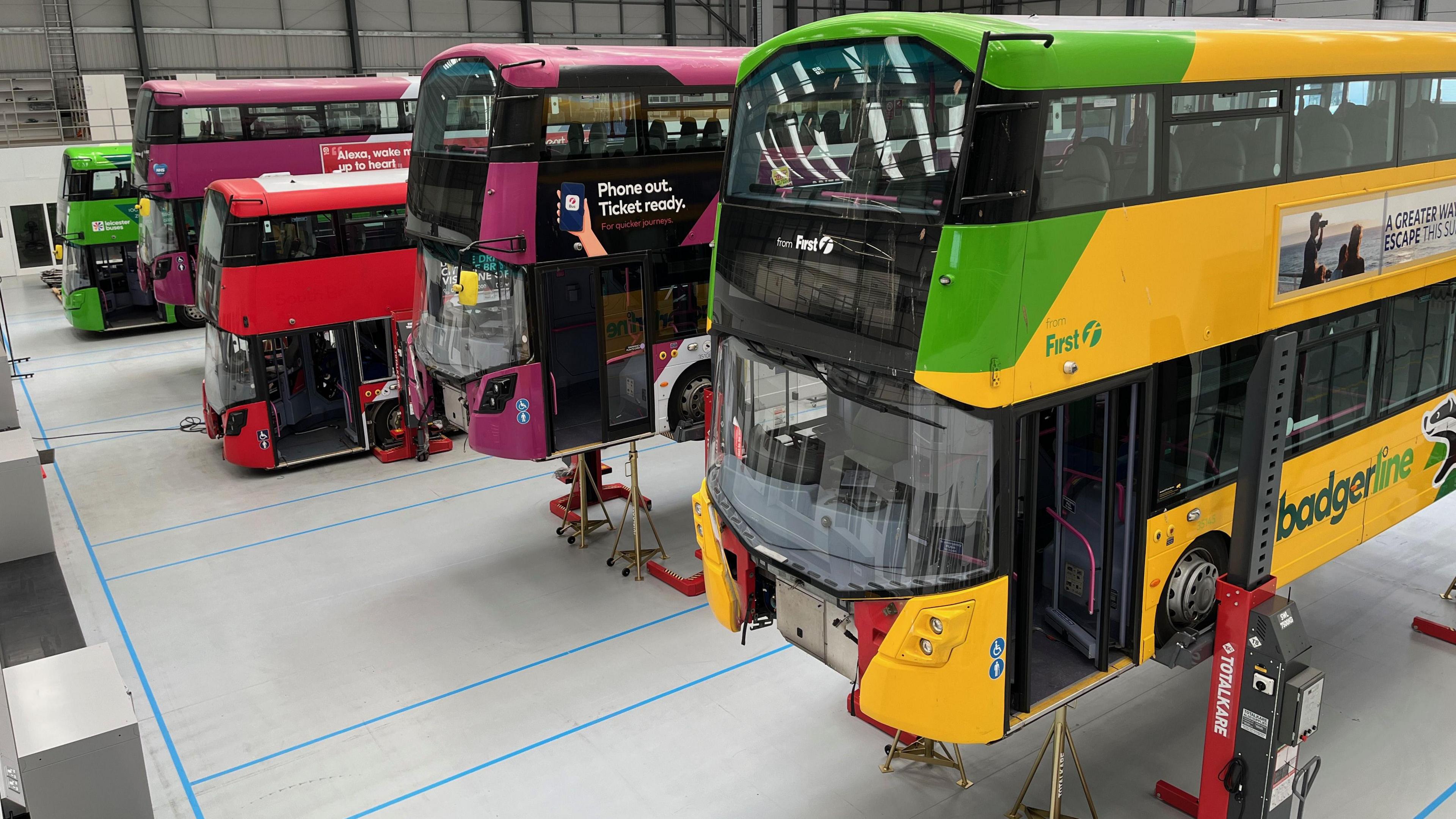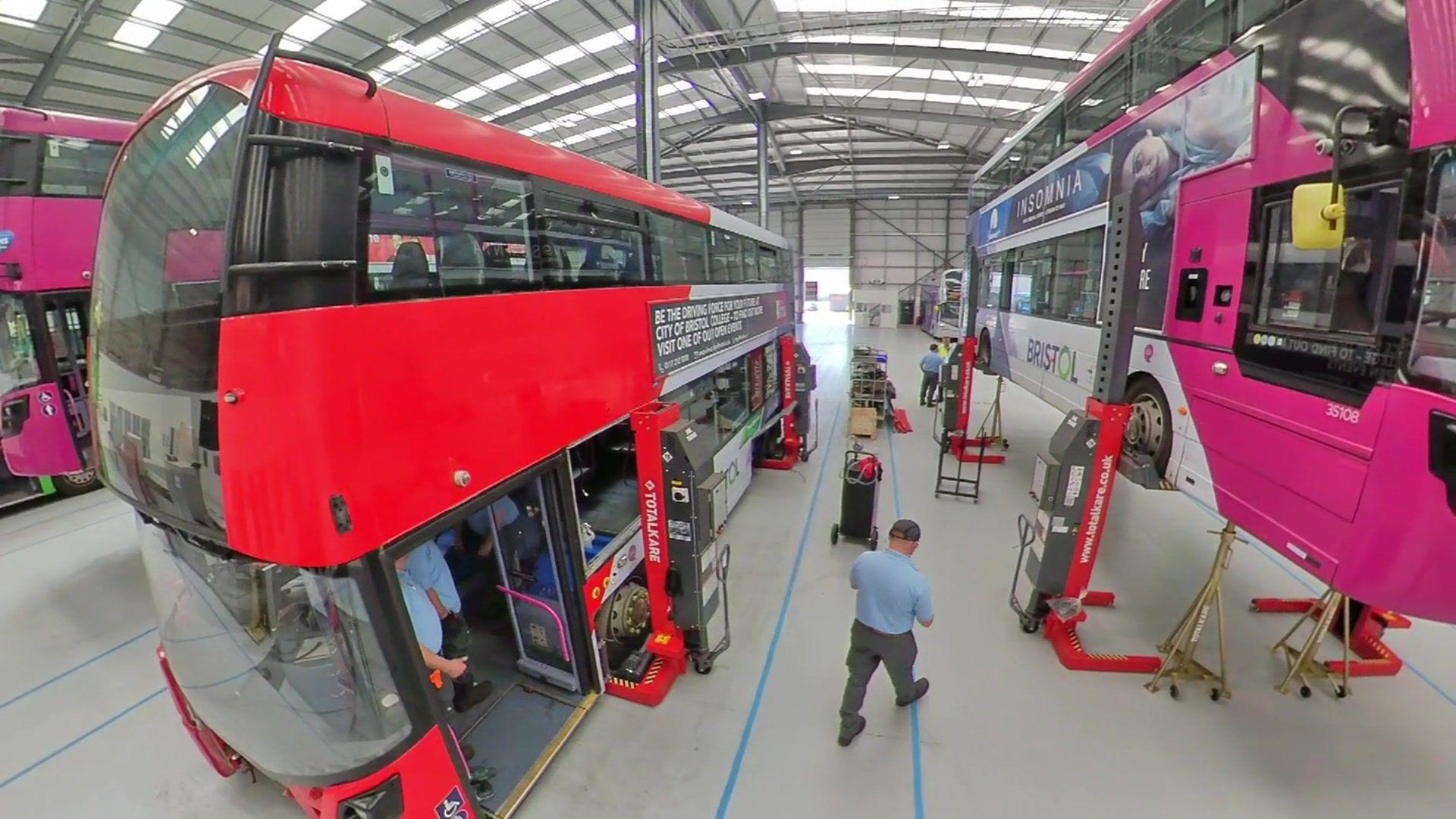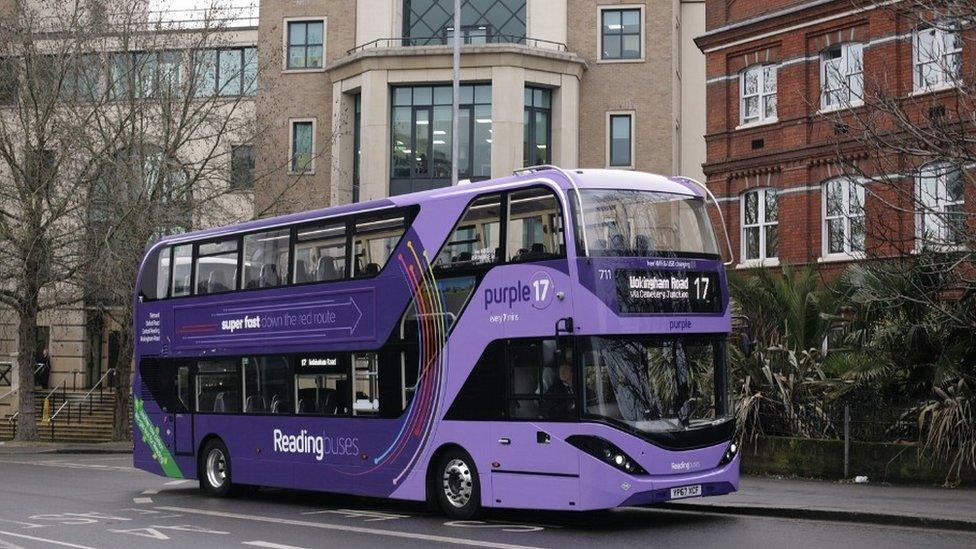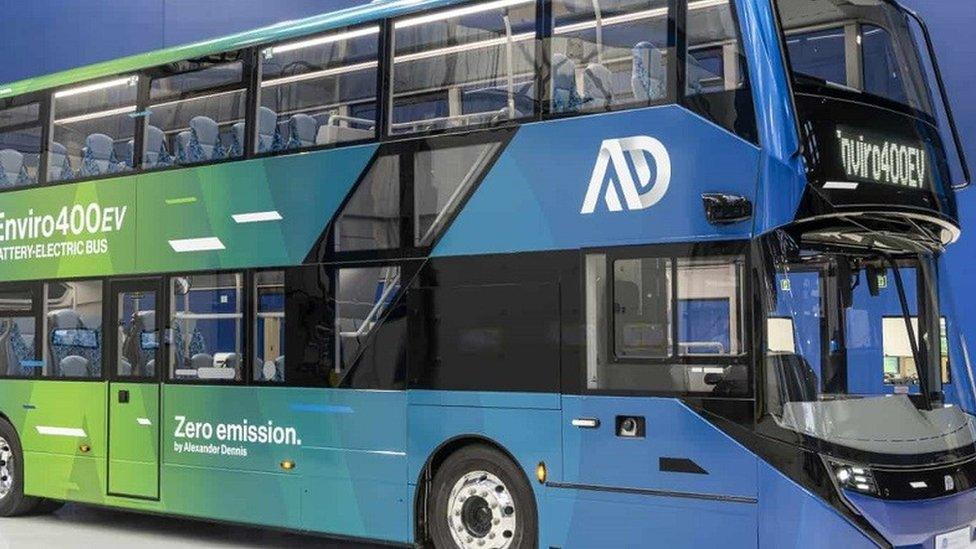Workshop converts diesel buses to use battery power

The workshop boasts a full order book until the middle of 2025
- Published
A new workshop in Oxfordshire has started converting old diesel buses into zero-emission battery-powered vehicles.
Opening in Bicester this month, Wrightbus aims to decarbonise 500 buses in its first year.
The company says retro-fitting older vehicles will appeal to operators and local authorities that cannot find the money for new ones, and expects it will extend the life of each bus by a decade.
Wrightbus is the UK's largest manufacturer of new electric buses, producing 1,000 in 2023.
Its factory at Ballymena in Northern Ireland has built buses for Oxford, Portsmouth, Salisbury and many other cities.
Technician David Connolly moved to help start the new venture, which uses batteries from a French company but sourced in China.
"This bus is nine years old," he explained, beside a First Bus vehicle from Leicester.
Its previous, rather dirty, diesel engine rests on a pallet alongside.
"We've brought it up to 2024 spec. There are no emissions from it now at all," he said.

Wrightbus aims to decarbonise 500 buses in its first year
Four battery packs have been fitted where the engine used to be. A fifth battery has been installed inside. A range of 175 miles is promised, charging once a day.
A new battery bus costs around half a million pounds. Repurposing an older vehicle is half the price.
Chief Executive Jean-Marc Gales said: "This is for bus companies that want to decarbonise faster, but cannot afford the investment a new bus requires.
"We can decarbonise a bus within three weeks, and give it a second lease of life.
"The sweet spot is buses that are between five and nine years old. We give a 10-year warranty on that.
"We can also completely refurbish that bus here in Bicester."
There are 34,000 diesel buses in the UK.
It is very unlikely they could all be replaced by new electric ones in 10 years, so Wrightbus predicts a strong market.
Major car and lorry manufacturers have not followed a similar route. Though train builders are developing the idea.
There are 22 staff at the workshop now, increasing to 65 by the end of this year.
Even if this is a stop-gap solution to speed up reducing emissions on public transport, the workshop boasts a full order book until the middle of 2025.
Follow BBC South on Facebook, external, X (Twitter), external, or Instagram, external. Send your story ideas to south.newsonline@bbc.co.uk, external or via WhatsApp on 0808 100 2240, external.
Related topics
- Published26 March 2024

- Published31 March 2024
